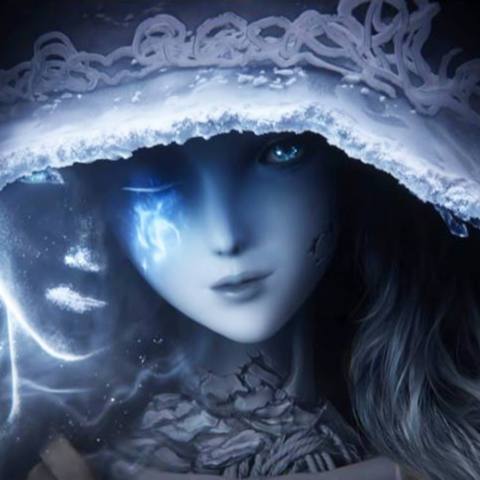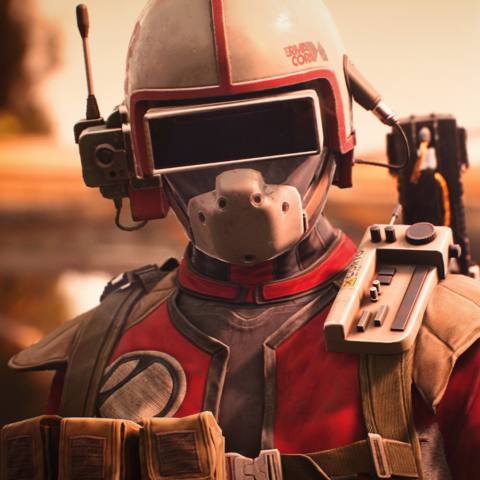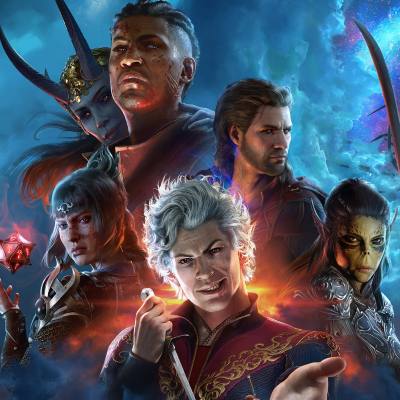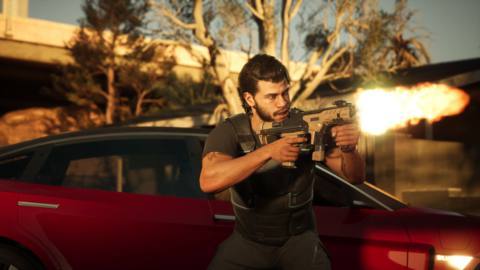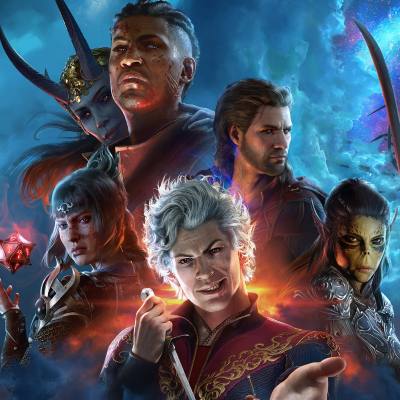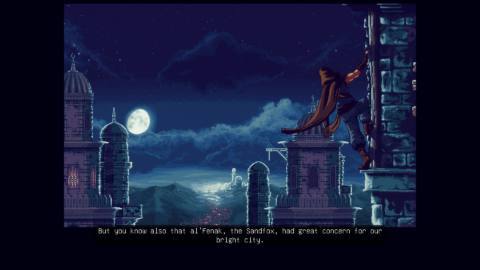What's the iconic Fallout experience? Is it talking the final boss into changing their philosophy, or is it shooting mutants in the ruins of America Those are easier things to highlight, memorable peaks that make for good videos, but they're not true to what we do the most when we're playing those games. We spend hours and hours reading people's private emails and descriptions of the days leading up to the Big One, and picking up too many mugs then having to filter our inventories.
The first of those two activities is represented in our exclusive preview card from Magic: The Gathering's Fallout crossover, which is Piper Wright, Publick Reporter (art by Rafater). An investigative journalist who becomes one of your companions in Fallout 4, Piper is the Lois Lane of the Wasteland. In Magic terms, her snooping around on hacked terminals is represented by Clue tokens that can be spent to draw additional cards, and whenever you do Piper powers up another creature by giving them a +1/+1 counter.
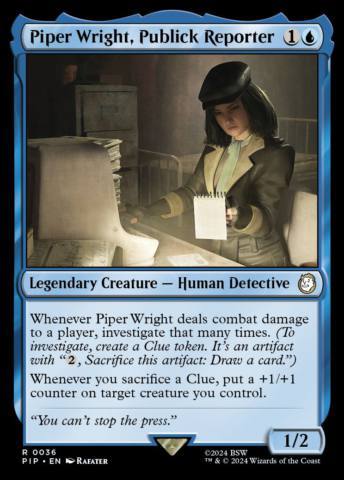
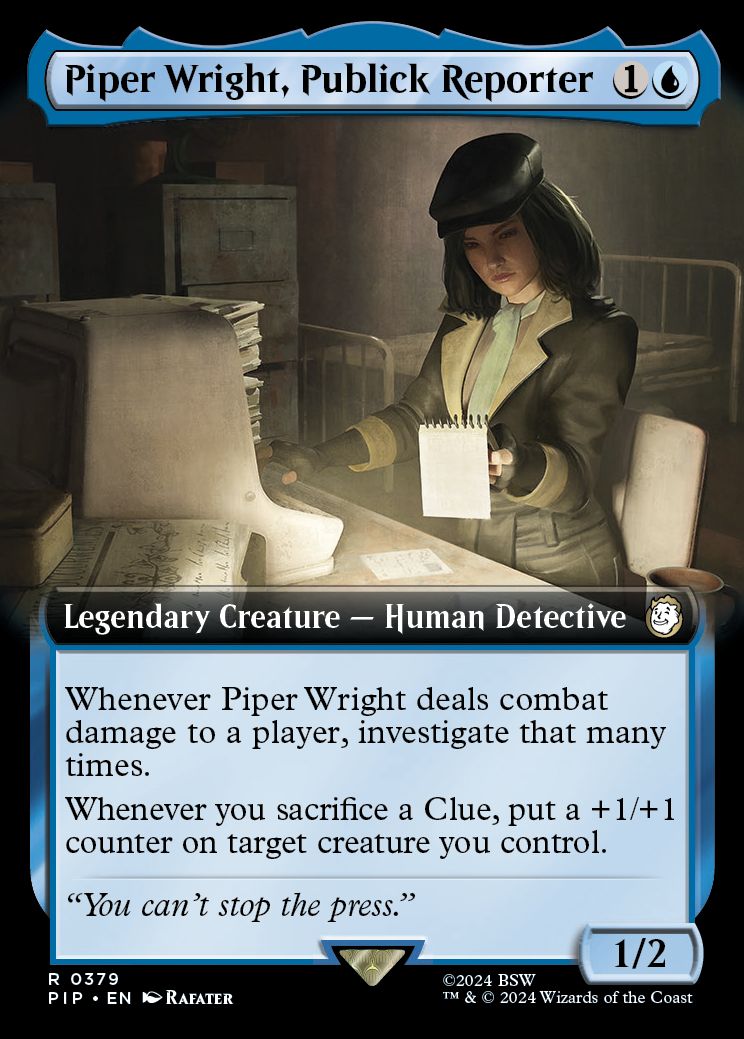
This Fallout crossover comes in the form of four decks for Magic's Commander format, each with a different theme. One, called Scrappy Survivors, features Dogmeat as its Commander and goes heavy on Junk tokens—a new mechanic for this set allowing you to exile a card from the top of your deck and, if you've got the mana, play it that same turn. It's like you're sifting through the trash in search of treasure, just like you do in Fallout with Dogmeat's help.
Meanwhile, the Overencumbered card gives your opponent a set of tokens for free, but prevents their creatures from attacking unless they pay one mana for each artifact they have—punishing them for having too much stuff. Other concepts from the Fallout games are well-represented by borrowing mechanics from older sets, like the V.A.T.S. card, which reuses the Split Second mechanic from Time Spiral to essentially freeze time and prevent your opponent playing cards while it does its thing.
There's also the Gary Clone, which borrows the Squad mechanic from Magic's Warhammer 40,000 crossover. That lets you summon copies of Gary when you play him for two extra mana—as many Garys as you want. And the more Gary Clones you have, the more powerful they become. I can hear his haunting cry right now.
While those cards were inspired by Fallout 3, other games in the series get their moment as well. The Master from the original Fallout turns up in the Mutant Menace deck, and Agent Frank Horrigan, the final boss of Fallout 2, appears as an intimidating 8/6 creature. New Vegas lends a theme to the Hail, Caesar deck, which includes cards based on more aggro factions like Caesar's Legion and the Powder Gangers. Fallout 4's companions other than Piper Wright, like Nick Valentine and Preston Garvey, put in appearances too, and Fallout 76 provides the Mothman.
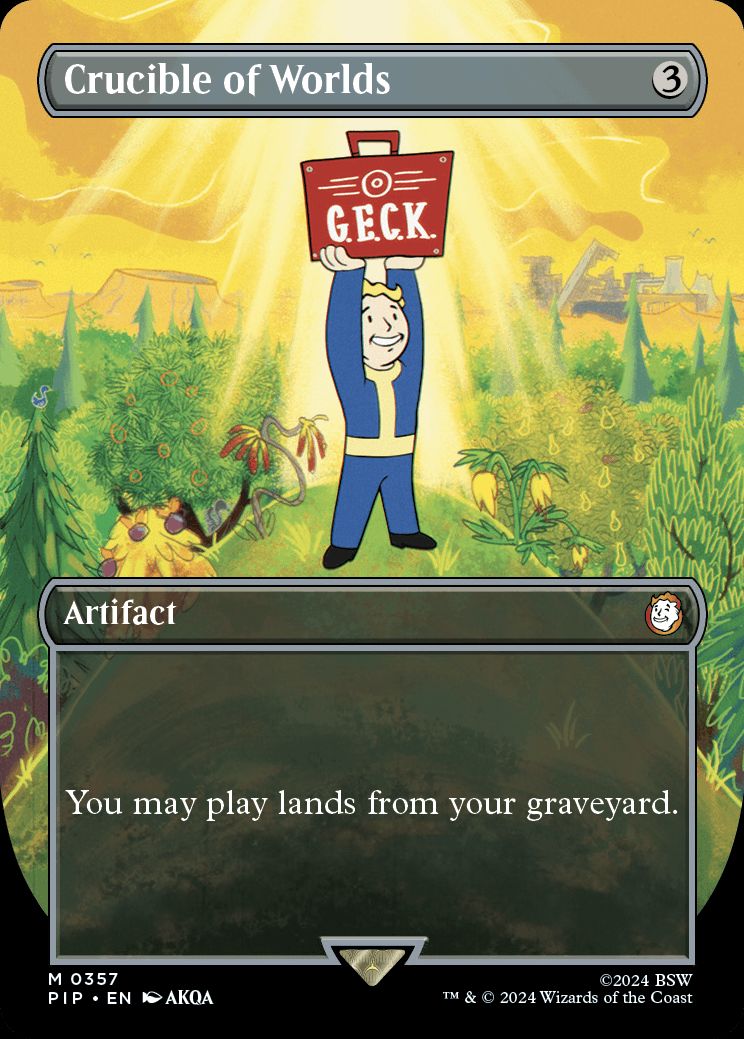
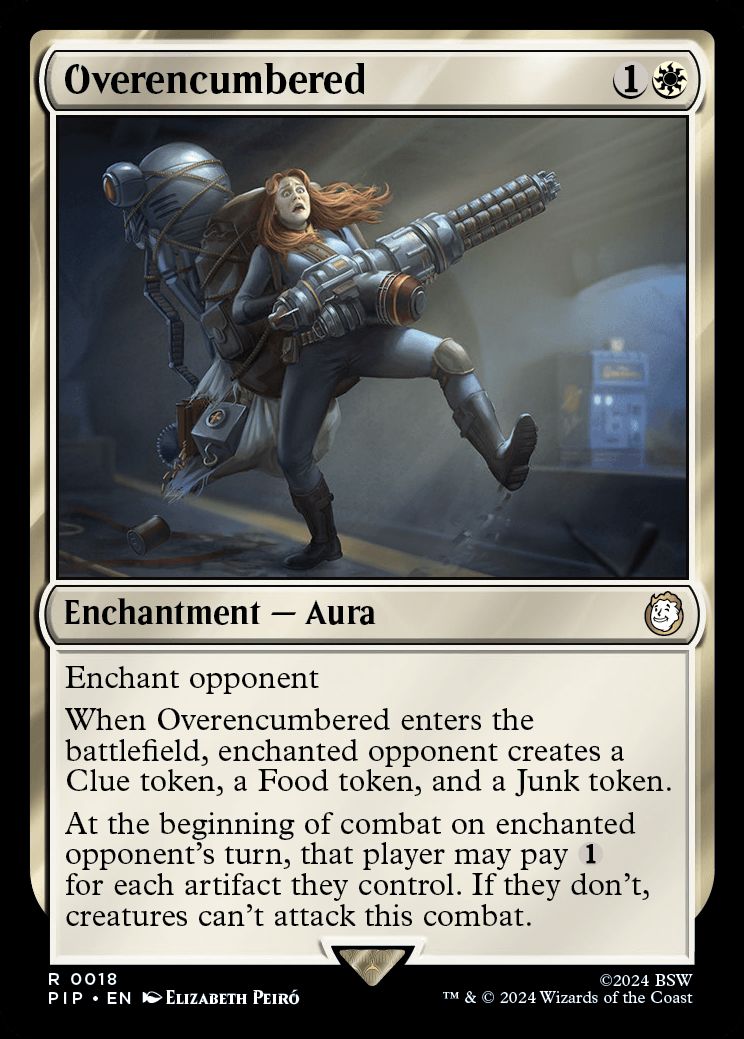
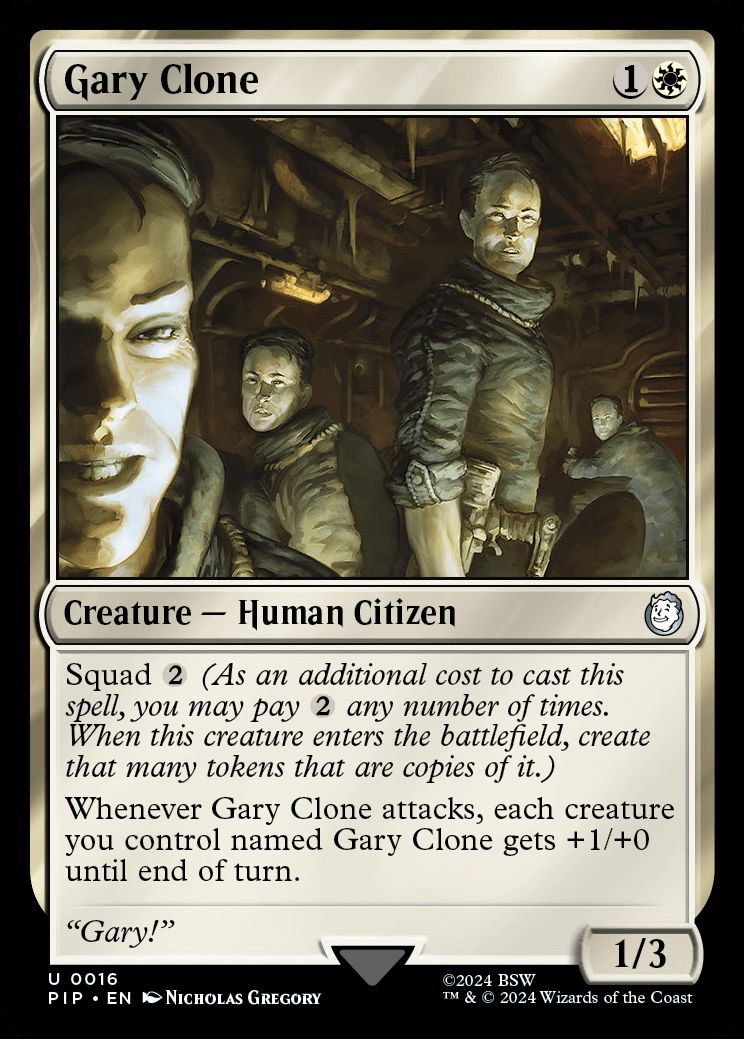
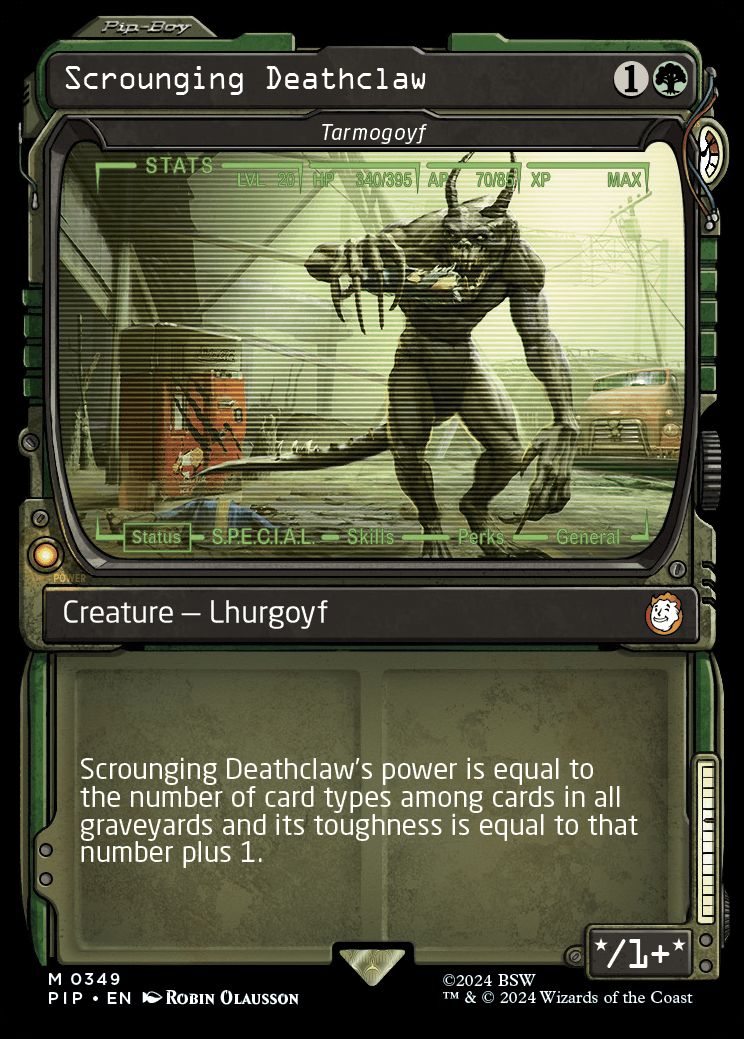
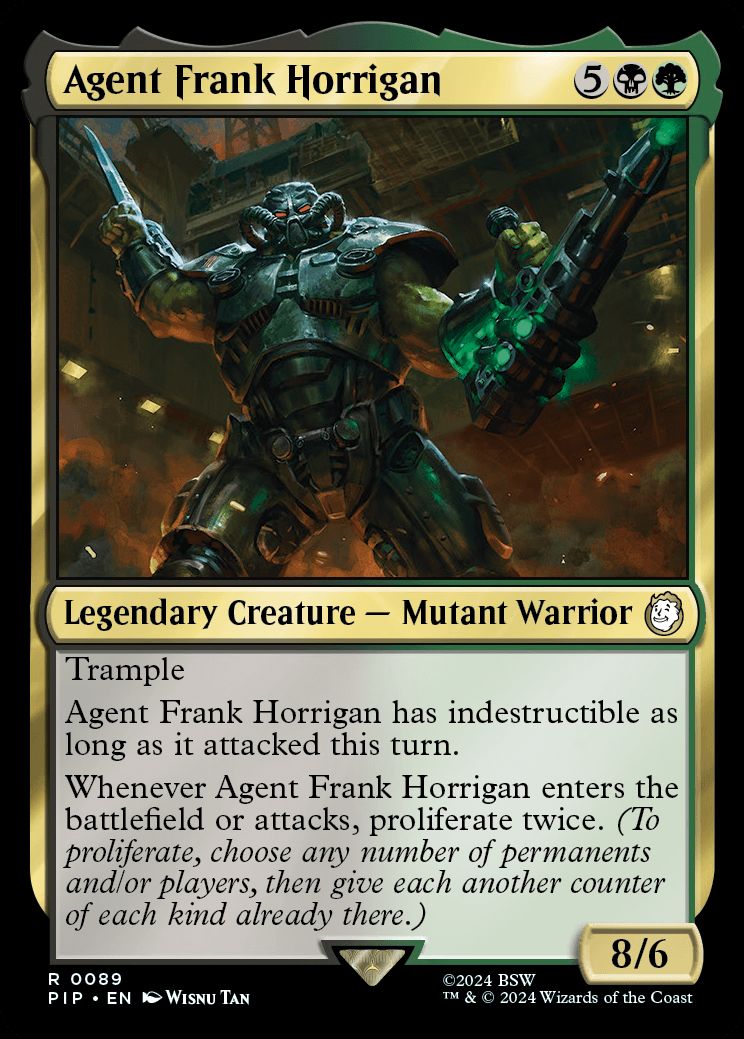
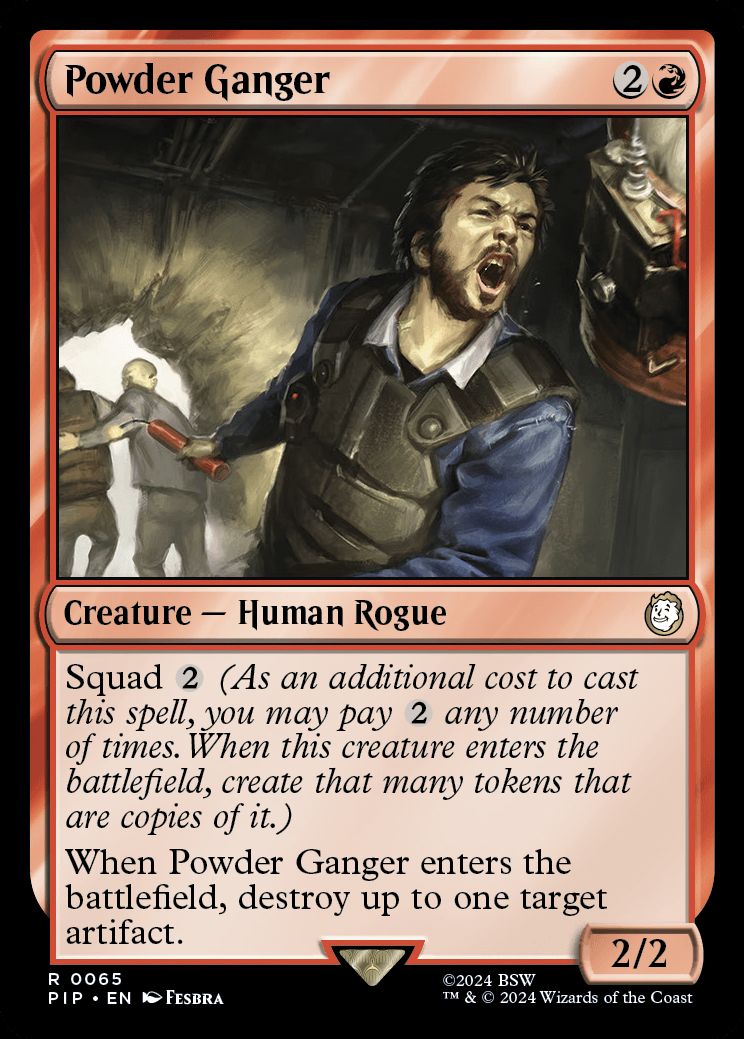
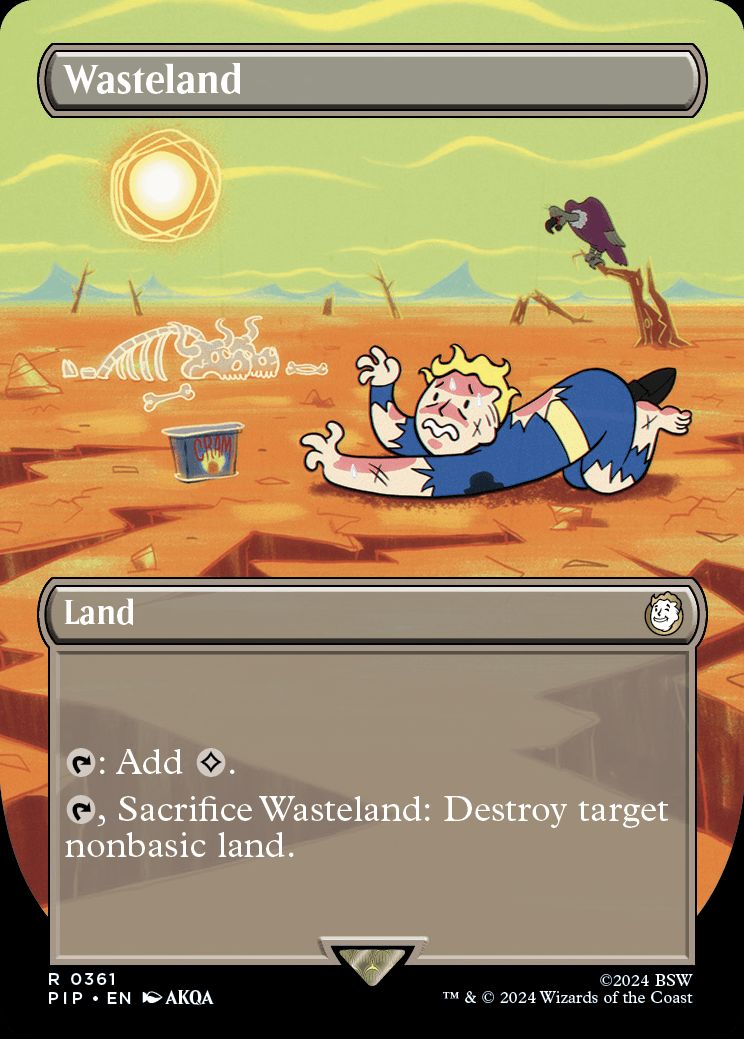
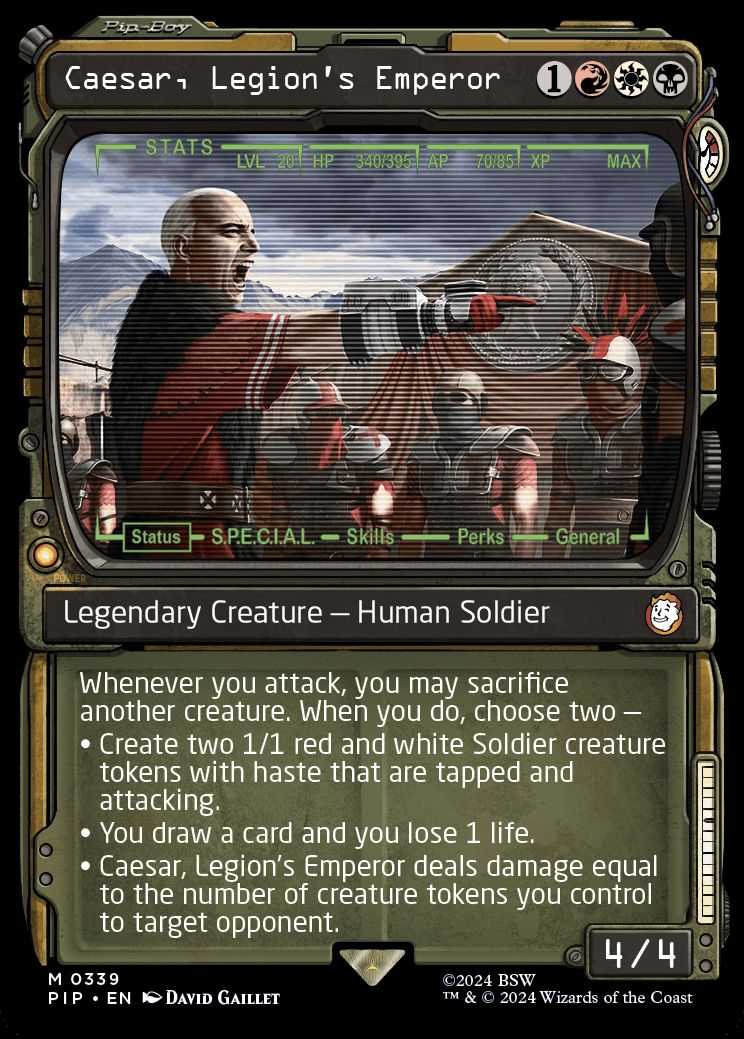
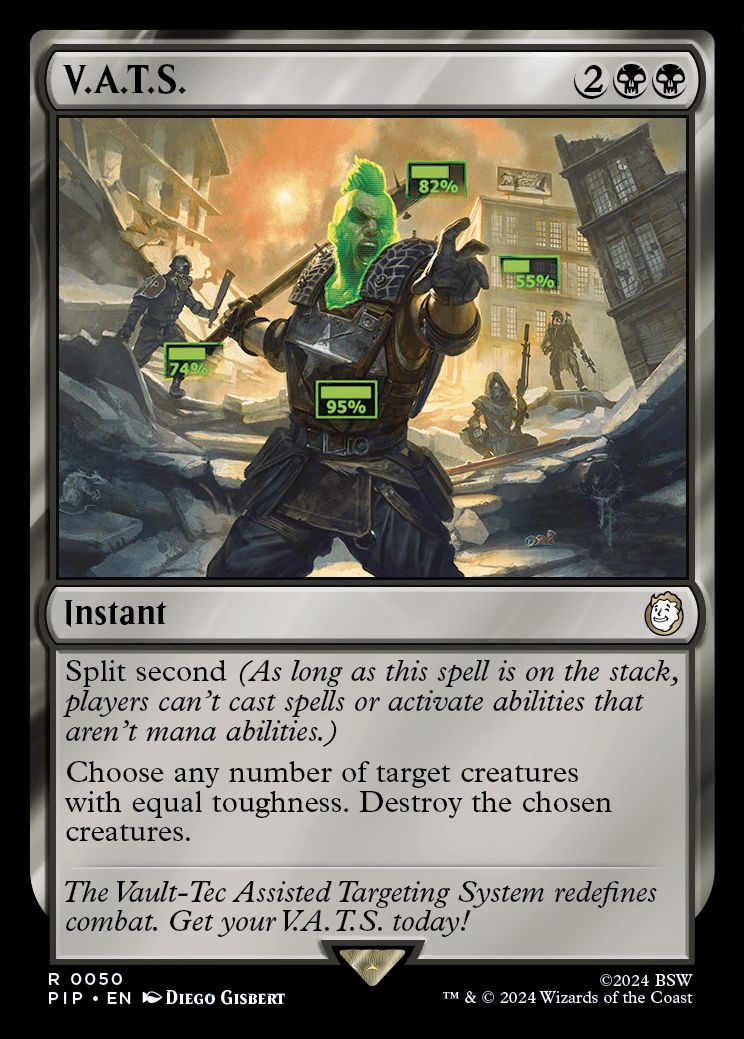
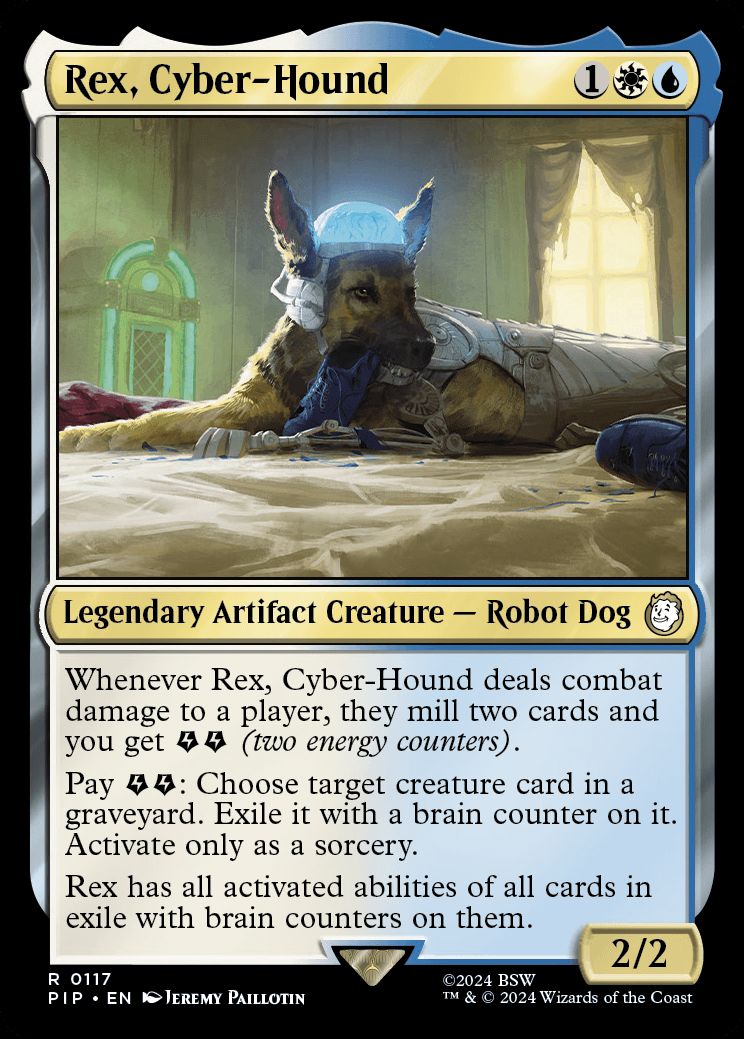
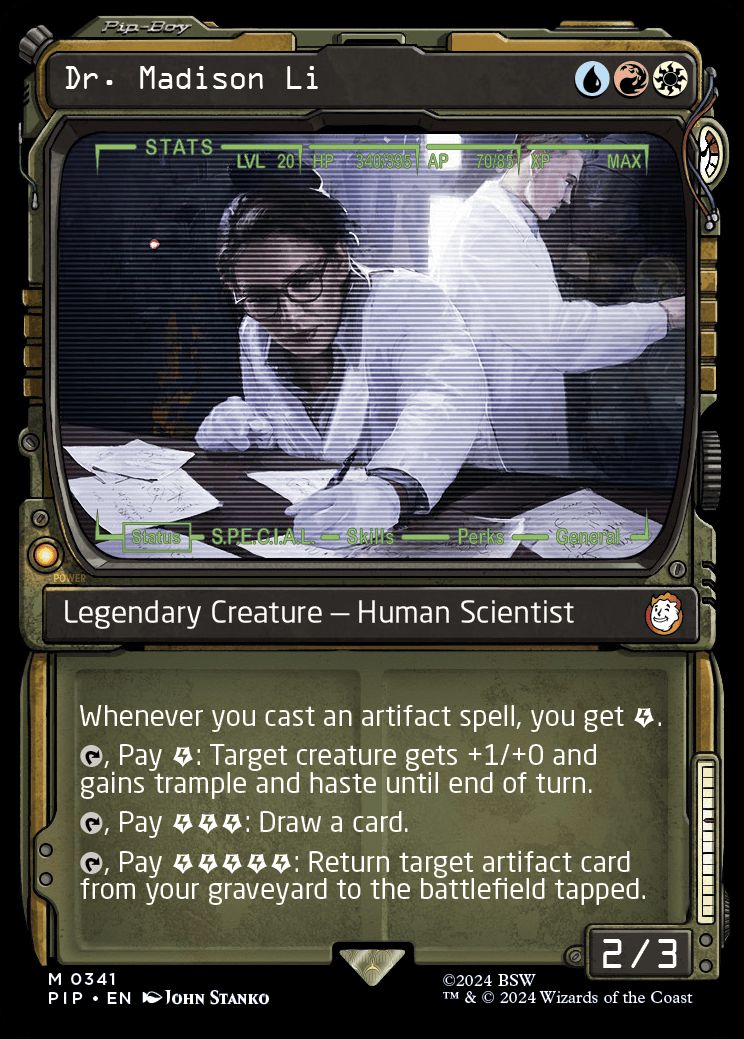
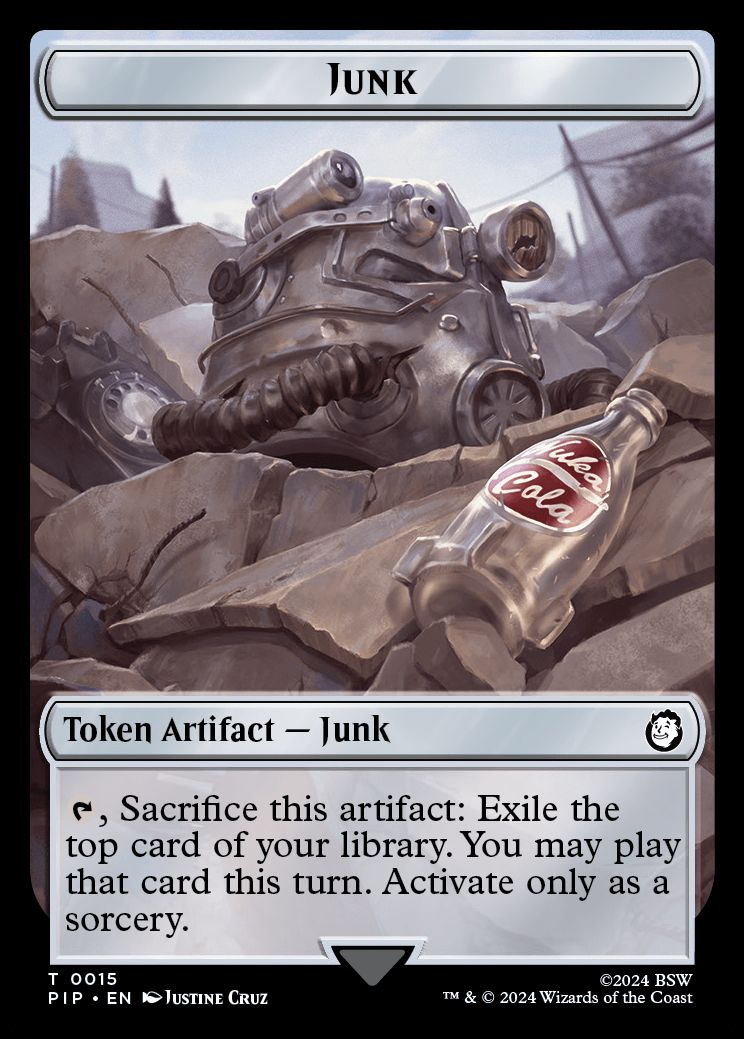
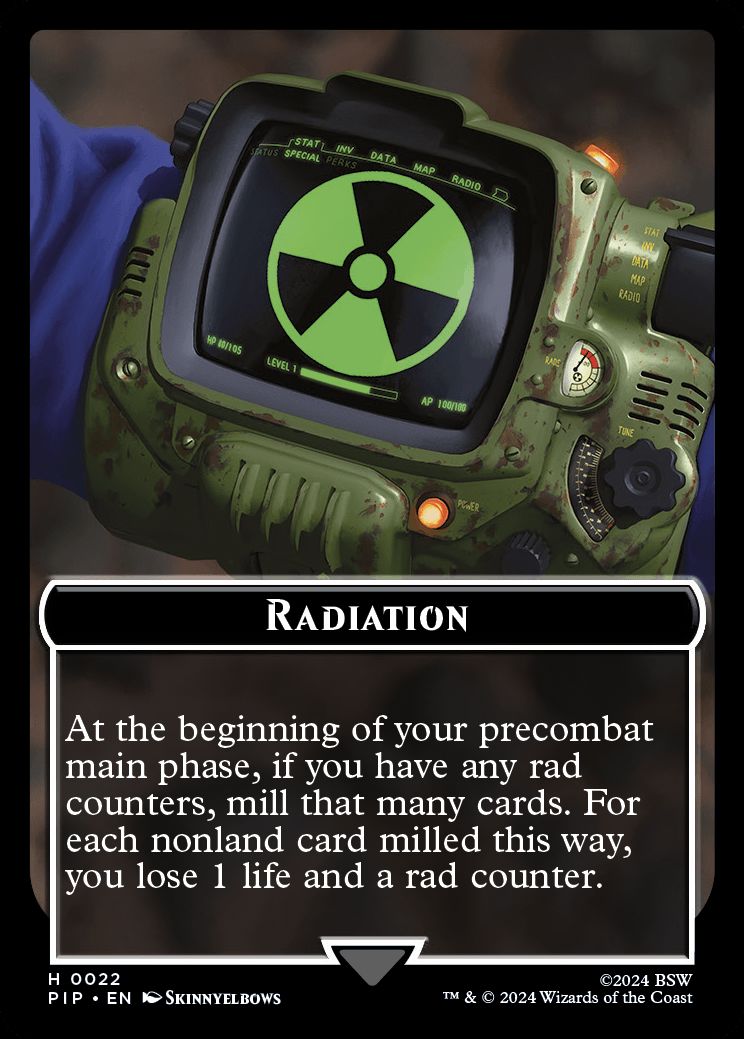
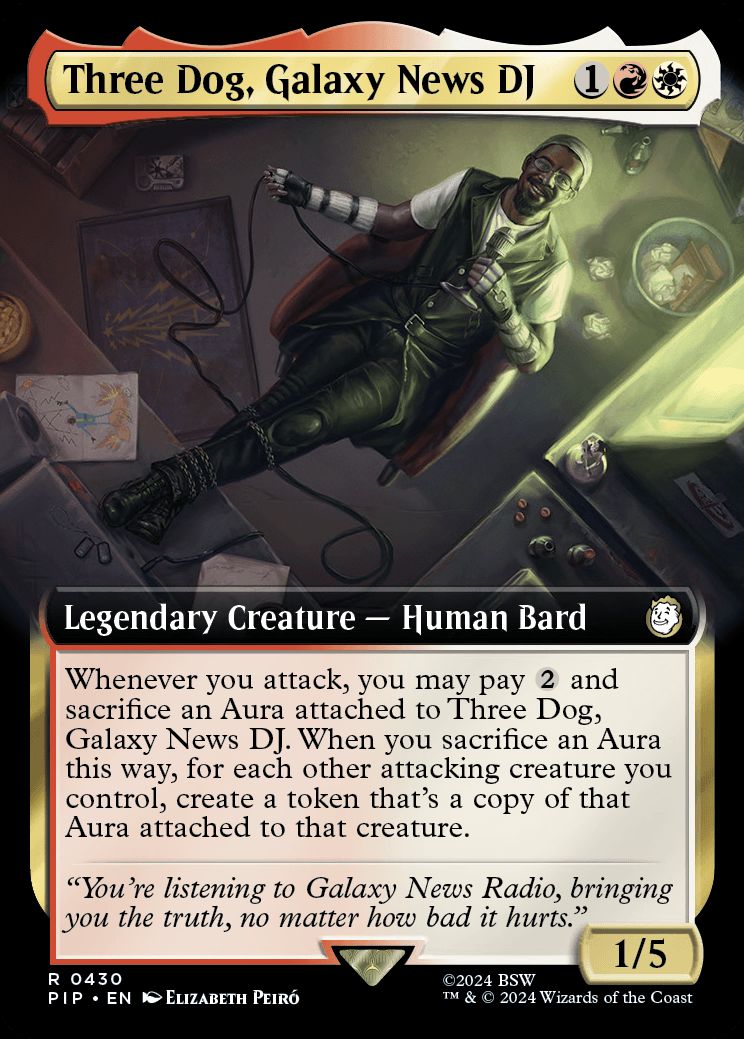
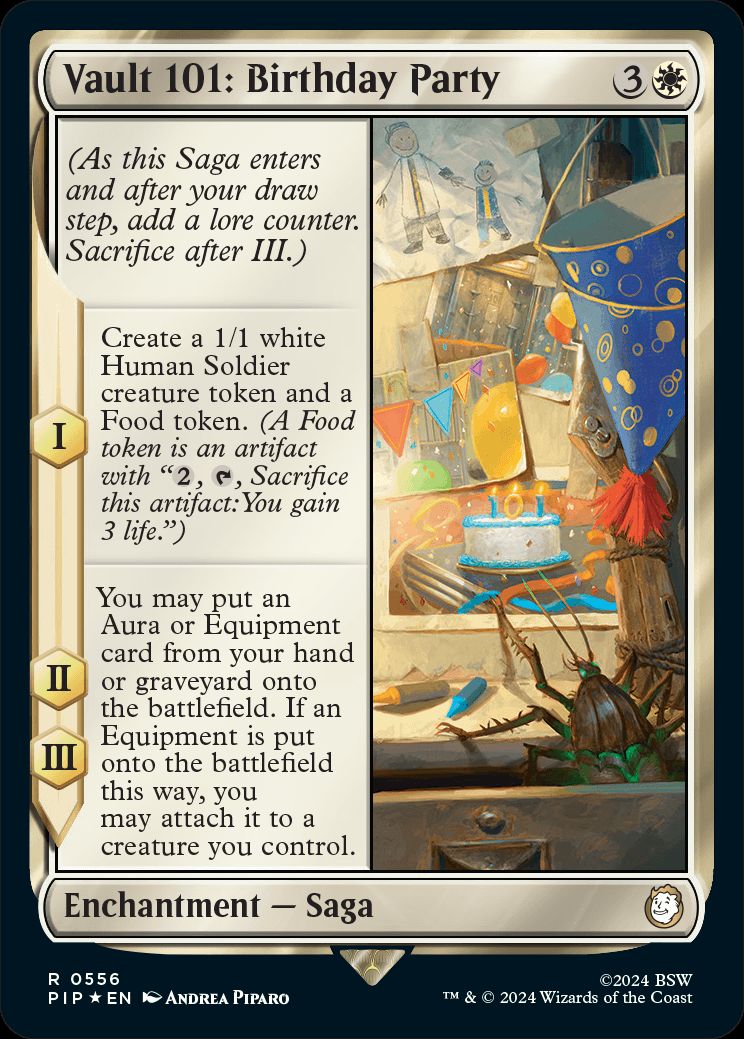
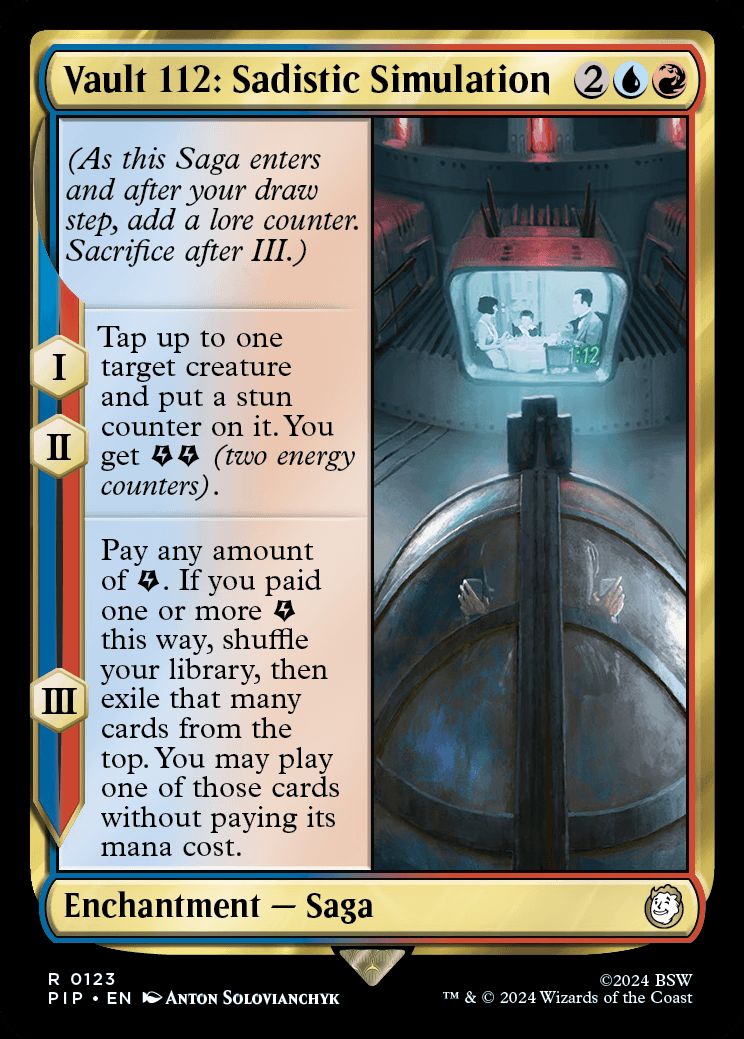
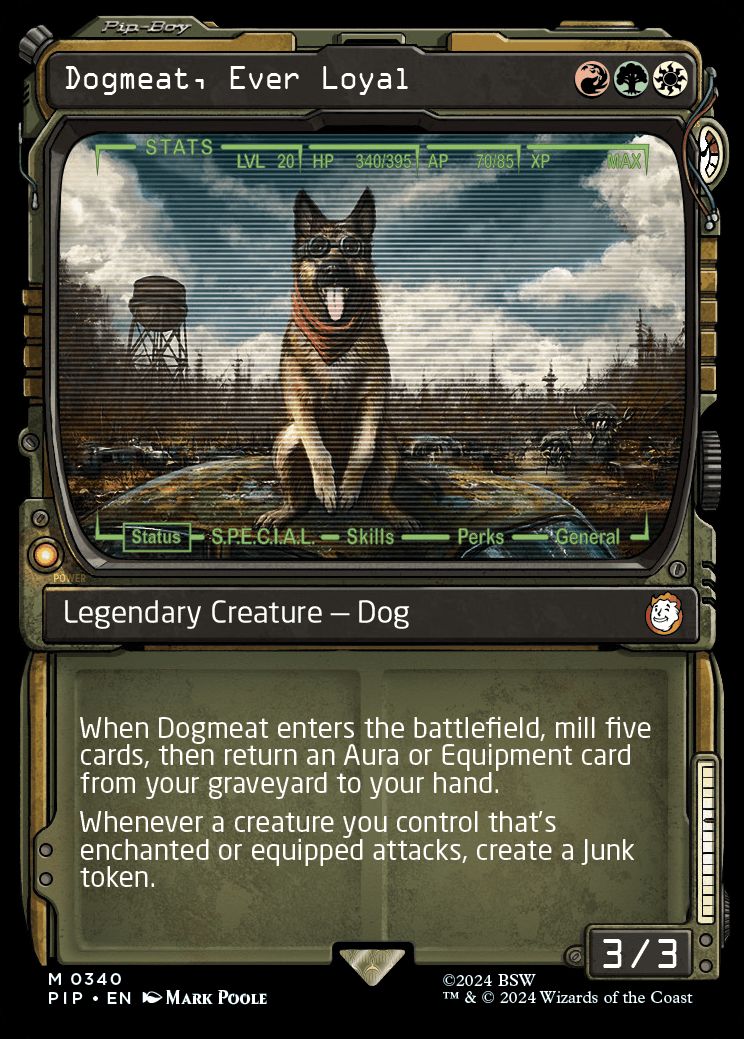
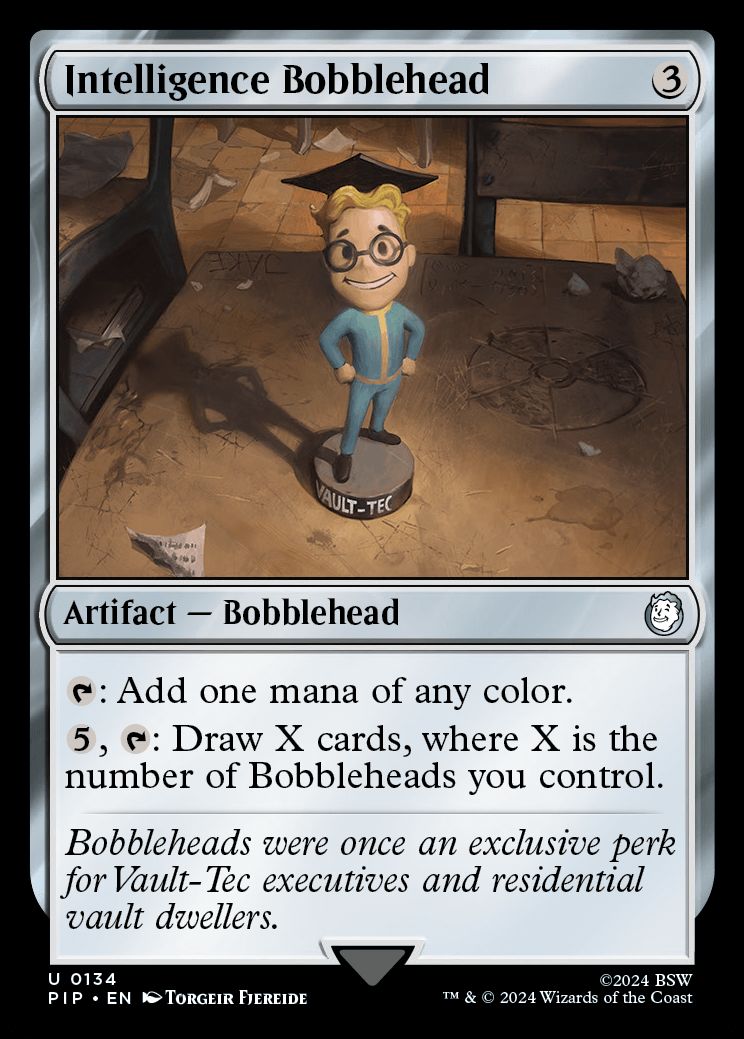
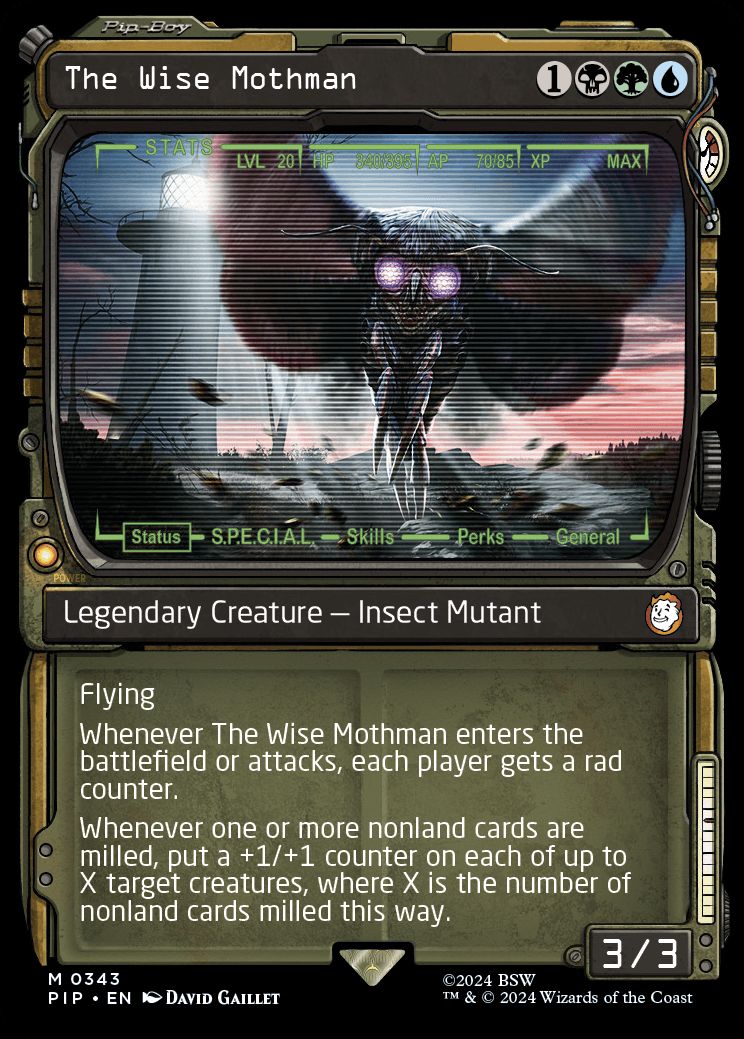
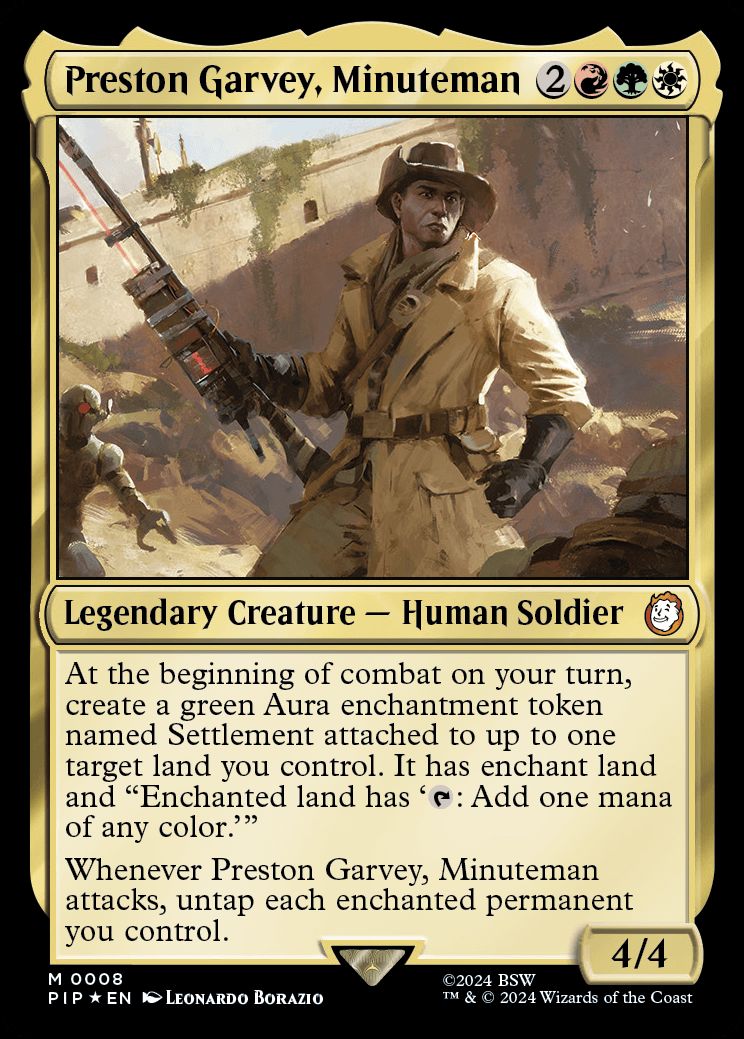
But cameos for named characters aren't the thing that made me interested in this crossover. That was the way it understands what it's actually like to play Fallout, and how that's represented in the cards. For one more example, the cards for Vaults aren't locations but Sagas, which suits the way they're represented in the videogames—isolated chapters that begin when you crack the door and end when it closes behind you, each telling a short story of its own.
If I'm honest, I was also pretty sold when I saw that some of the cards have Pip-Boy theming that surrounds the art with green status text and covers it in CRT lines like you're seeing it in-game. Yes, I do want a card of Dogmeat in a Fallout-themed menu screen, sitting like a good boy while he's being photographed with a Pip-Boy.
Magic: The Gathering x Fallout will be available globally from March 8. Check your local WPN store for release events.

